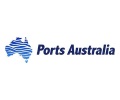

Ports Australia supports the work of Transport for NSW developing their Freight Community System Strategic Business Case and urges the Federal Government to take the lead on exploring its potential.
‘The Freight Community System would be a neutral and open digitised platform enabling freight supply chain participants to rapidly and securely exchange information to optimise, automate and manage logistics processes, by providing visibility of data across freight supply chains.’
The work being conducted by Transport for NSW highlights the exciting growing awareness amongst government and industry of the potential of Freight Community Systems.
Ports Australia has thrown its support behind those who have already conducted research in this space and we congratulate their forward-thinking. The Port of Brisbane is one of those leaders with involvement from several ports around Australia.
Ports Australia has recommended Transport for NSW liaise with the Port of Brisbane and utilise the knowledge they have built, as well as reach out to Ports Australia who can facilitate industry feedback via the expertise of the Logistics Working Group.
It is encouraging to see Transport for NSW and various industry members exploring the potential of Freight Community Systems – and others like the Freight and Logistics Council of Western Australia commencing a state-based project to improve freight data tracking – but it is now time for the Federal Government to get involved and begin leading this charge.
The purpose of Freight Community Systems will be contradicted if each state and territory across Australia has a separate system. Ports Australia has therefore recommended to Transport for NSW that a national approach to this new direction is adopted and championed by the Australian Government Department of Infrastructure, Transport, Regional Economics and Communication in conjunction with state and territory jurisdictions.
Ports Australia’s CEO, Mike Gallacher spoke on the potential benefits of Freight Community Systems.
‘It’s exciting to imagine one system as home to all exchanges of data across the supply chain… it seems a simple idea but the potential benefits like improved urban planning, reduced freight transit times, and reduced supply chain disruption are enticing.
‘To make this work, it needs to be led from the top and Ports Australia now urges the Australian Federal Government to begin working with their state and territory counterparts,’ Mike ended.
Ports Australia’s Policy and Operations Director, Margaret Barbouttis echoed Mike’s words and discussed why the technology is important for our supply chain.
‘Supply chains are webs of inter-connected moving parts which are making constant exchanges of information resulting in the efficiency our society reaps every day.
‘The means behind those exchanges are complex and often unique across the supply chain, meaning the opportunity to develop a secure, standardised system is an exciting one for all involved,’ Margie ended.
Source: Ports Australia